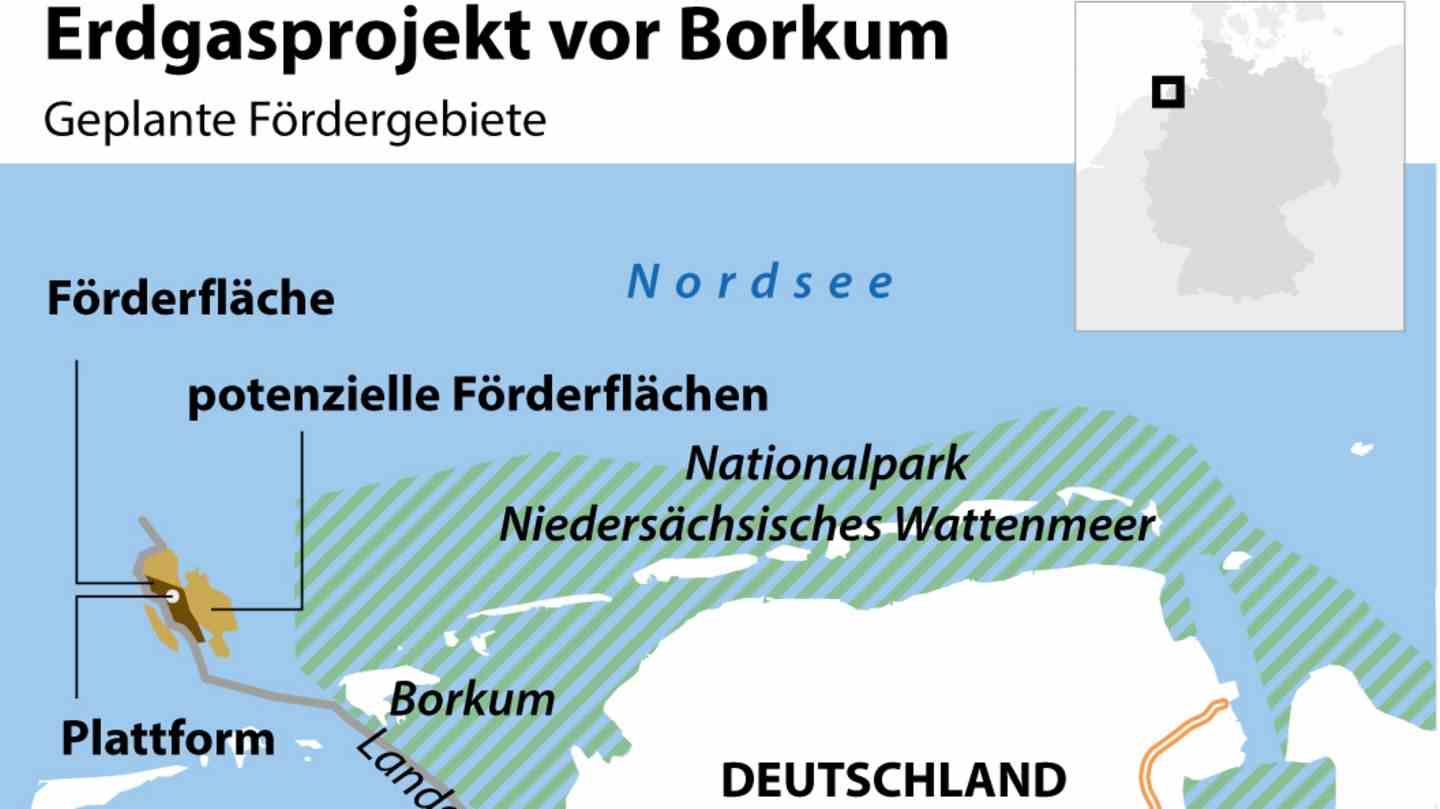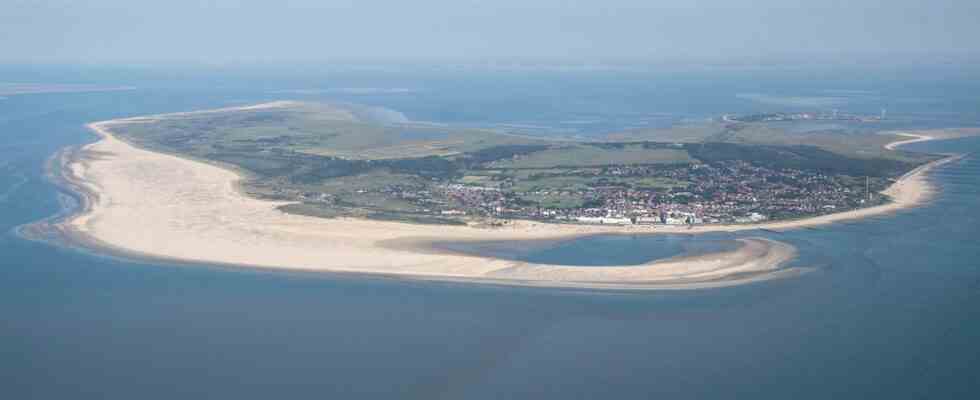The pipeline project has been toyed with and quarreled with for a long time. The Ukraine war now gave the decisive impetus: A natural gas field is to be tapped in the North Sea. But can Germany free itself from Russian imports?
Russia turns off the gas tap. At least for Poland and Bulgaria, as the energy giant Gazprom announced on Tuesday. While Poland has already prepared for this eventuality, Bulgaria will need help, estimates energy expert Claudia Kemfert from the German Institute for Economic Research. And when will it hit Germany? Kemfert does not expect supply shortages. The gas storage tanks are too full for that. According to the Istore initiative energies around 23 billion cubic meters of gas can be stored in Germany. This puts Germany in fourth place worldwide – behind the USA, Ukraine and Russia. According to a current management report by the Federal Network Agency, the storage facilities are a good third full.
And yet energy expert Kemfert advises precautions to be able to continue to guarantee security of supply. In other words: more gas from other countries, which fills up storage facilities in summer and saves energy in winter. For the FDP foreign politician Alexander Graf Lambsdorff, it is only a matter of time before Germany could also be affected by a Russian delivery stop. (Read here what the delivery stop in Poland and Bulgaria means for Germany.)
Gas deposits right on your doorstep
Germany already covers part of its energy requirements from its own reserves. About the oil. Drilling is already being carried out at two locations in the North Sea for this purpose. A natural gas project has also been under discussion for some time. In the German-Dutch border area, 20 kilometers north of the island of Borkum near the Lower Saxony Wadden Sea National Park, there is a gas field that, according to Lower Saxony’s Economics Minister Bernd Althusmann, has a volume of 60 billion cubic meters. This was discovered five years ago. The gas that occurs there is to be promoted by the Dutch company One-Dyas and to go in equal parts to Germany and the Netherlands. The Ukraine war turned out to be a stroke of luck for the project, because the red-black government in Lower Saxony had actually almost written off the project.

The gas field is located on the border with the Netherlands, 20 kilometers from the North Sea island of Borkum
© DPA / Picture Alliance
Last summer, the state government initially opposed the project. In view of the uncertainties in the energy supply caused by the war in Ukraine, she moved away from this position and advocated a reassessment. According to Althusmann, it is the “largest natural gas field that the Netherlands has planned to develop there in 25 years”. Just last Wednesday, the Ministry of Economic Affairs in Hanover and One-Dyas agreed on key points for gas production. For example, the natural gas produced under German sovereign waters should be made available to the German market, according to the draft of a joint declaration. The state cabinet must decide on the declaration in the next two weeks.
The project then has to be approved by the State Office for Mining, Energy and Geology (LBEG). If everything goes according to plan, according to One-Dyas, the first gas could be produced at the end of 2024 – i.e. exactly when Robert Habeck finally wants to break away from the Russian deliveries.
Pipeline project with concerns
The only condition: the national park and the surrounding islands must be protected. This is precisely why the project is causing dissatisfaction with the environmental associations and the Greens in the Lower Saxony state parliament. It cannot be “that in times of the climate crisis and a massive extinction of species worldwide – despite all developments related to the Ukraine war – the promotion of fossil energies continues,” criticized Holger Buschmann, state chairman of Nabu Lower Saxony.
Borkum’s mayor fears that the drilling could trigger earthquakes and subsidence of the island. In addition, pollutants could get into the sea, which could eventually wash up on the beaches of the North Sea islands. Mayor Jürgen Akkermann fears a threat to tourism.
Althusmann dismissed the concerns: “In my opinion, the environmental protection procedures, both on the Lower Saxony side and on the Dutch side, currently come to the conclusion that there is no environmental hazard.” According to the minister, One-Dyas also wants to give the State Office for Mining, Energy and Geology (LBEG) “comprehensive control options”.
Whether the project pays off, however, is another question. According to One-Dyas, between two and four billion cubic meters of gas could be produced annually. Deutsche Welle even reports five billion. Overall, the requirement in Germany is 90 billion cubic meters per year.
The “take or pay” dilemma
Aside from the environmental concerns, there’s a catch. As a team from the political television magazine “Frontal” found out, Germany will not be able to get out of the gas contracts concluded with Russia until 2030. Economics Minister Habeck’s promise not to purchase any more Russian gas by 2024 is possible, but the price is all the higher. Because Germany has made a long-term commitment to Russian gas imports.
It all began in the 1990s, when the listed chemical company BASF entered into business with Gazprom and built the first gas pipeline to Ludwigshafen. For a preferential price for gas, the companies laid further pipes from Siberia to Germany until the 2000s. This gave the Federal Republic of Germany a locational advantage, while dependence on Russia grew at the same time. In 2005 Gerhard Schröder proudly announced that Germany would secure its energy supply for decades to come. And his successor, Angela Merkel, announced that she would continue to expand the strategic partnership. The Crimean War couldn’t do anything about it, instead BASF gave Gazprom two gas companies and Germany’s largest gas storage facility. In 2015, the then BASF CEO, Kurt Bock, confirmed that the cooperation with Gazprom was designed for the next 20 to 30 years.
Germany has committed to purchasing 40 billion cubic meters of gas annually by 2030. If this does not happen, the amount that is not taken must be paid for. The contracts work according to the “take or pay” principle. If Habeck were to implement his plans and cut gas supplies to Germany from 2024 or earlier, the 40 billion cubic meters would still have to be paid for by 2030 – a lucrative business for Gazprom.
A gas boycott could render the contracts null and void. However, German industry is fighting back, above all the BASF group. So Germany – gas production on its own doorstep or not – only has to continue to receive gas supplies from Russia until 2030. Turning them down would be a pure loss.
Sources: Federal Ministry of Economics and Climate Protection, One DyasGDPN, Saving energy initiative, AGSI, frontal 21NDR, German wave, “business week”, NABU Lower Saxonywith material from DPA

